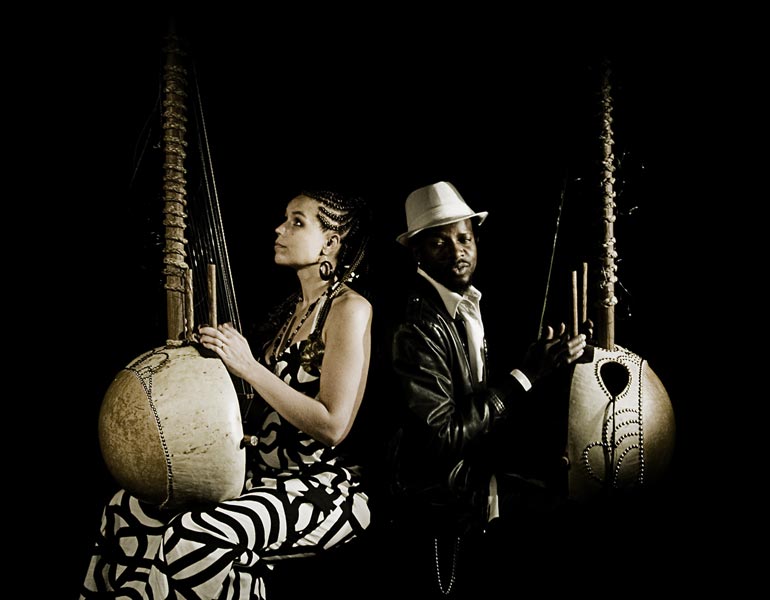
Moussa Diawara
Style
fusion, jazz, roots
Guinean singer and composer Djeli Moussa Diawara is foremost among world players of the kora, the African harp-lute of the Manding people of the Senegambia. Born in Guinea in 1962 into a family whose musical roots span generations, his father was a famous player of the balafon (African wooden cousin to the xylophone), and his mother sang.
He joined his family as a member of the djeli (or jail) caste – the honoured griots that carry a tradition of reciting town news through improvised lyrics and melody on the kora. Like his half-brother Mory Kante -sharing the same mother - he was drilled by his elders in music, instrumental technique and a millennium’s worth of oral history and genealogies.
The kora is a demanding instrument, consisting of two parallel rows of 32 strings attached to a notched bridge on a resonating gourd. Djeli’s confident command of it is the result of a lifetime of study and practice. Through the intimate bond with the kora, he has developed a rich musical talent, allowing him to wander from traditional rhythms from his Mandingo roots to unexpected styles, such as salsa, flamenco and jazz, always pushing the boundaries of his kora.
Aside from his solo career – of which he has released seven albums so far, with the eighth in the studio at the time of writing – he is also part of the Kora Jazz Trio group, which he founded together with Abdoulaye Diabaté (piano) and Moussa Cissoko (drums) and in which he composed most of the tracks of the three albums the trio have released.
Since the release of his first solo LP recorded in Abidjan in 1983, he has toured and recorded extensively meeting on stage or in the studio with many great artists such as Ali Farka Touré, Carolos Santana, Bob Brozman, Manu Dibango, Janice de Rosa, Stephan Eicher, Cheick Tidiane Seck.
Now living in Paris, Djeli Moussa Diawara is working on his new solo album, due for release later in the year.


No comments:
Post a Comment